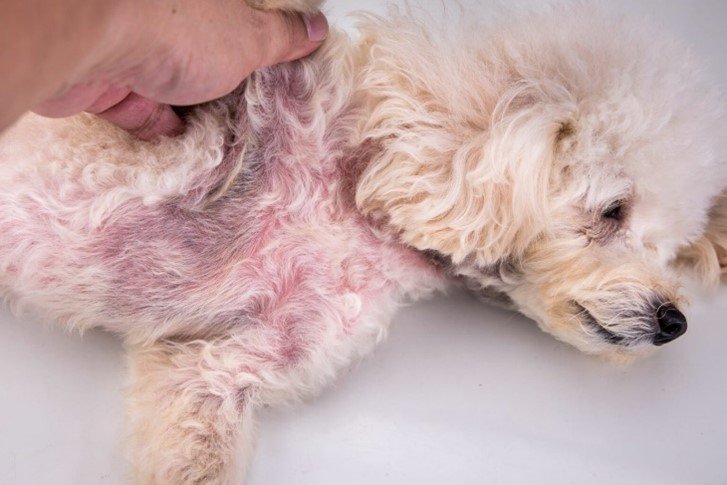Spring time allergies in Pets
Springtime can mean allergies for pets.
Allergies in pets are quite common and can cause a range of symptoms and discomfort for your cat or dog. There are three main types of allergies in pets:
1. Environmental Allergies (Atopy): Environmental allergies are typically caused by allergens in the pet’s surroundings such as pollen, dust mites, mold spores and certain grasses or trees. Common symptoms include itching, scratching, licking, and respiratory issues. Environmental allergies can be an extremely frustrating problem for both you and your pet. Management may involve allergen avoidance, medication, immunotherapy, or a change in diet to help repair and rebuild the skin barrier.
2. Flea Allergies: Some pets are allergic to flea salvia and even a single flea bite can trigger an intense allergic reaction. Symptoms often include severe itching, skin inflammation and hair loss. Preventing and treating flea infestations is crucial for managing this type of allergy. Ensure that each pet in the household is on an appropriate parasite prevention program. For example, NexGard Spectra, a monthly chew for dogs, and now available as a monthly spot-on for cats too.
3. Food Allergies: These occur when a pet’s immune system reacts to specific ingredients in their diet. Common allergens include proteins like chicken, beef, or duck. Symptoms include itching, gastrointestinal issues, ear infections and skin problems. Identifying the allergen often involves an elimination diet. If you think your dog might have a food allergy, please discuss this with one of our veterinarians at your pet’s next checkup. We currently have trial bags of Hills Canine Derm Complete. While stocks last! https://www.hillspet.com.au/dog-food/pd-canine-derm-complete-dry
Common signs of allergies in pets may include:
- Excessive scratching or licking
- Red, inflamed skin
- Ear infections
- Sneezing, and coughing
- Runny nose or eyes
- Vomiting or diarrhoea
- Hair loss
- Paw chewing
It is essential to have a consultation with one of our veterinarians if you suspect your pet might have allergies. They can conduct a thorough examination, get a detailed history, perform cytology if necessary and develop a treatment plan. Treatment options may include:
1. Allergen Avoidance: If the allergen is identified, the best approach is often to eliminate or reduce the pet’s exposure to it. This may involve changes in diet, keeping the pet indoors during high pollen seasons or using hypoallergenic bedding and cleaning products.
2. Medications: Our veterinarian may prescribe medications like antihistamines, corticosteroids, or immune-modulating drugs to manage allergy symptoms. Please ask our team about Cytopoint injections for dogs during your next checkup.
3. Topical Treatments: Shampoos, sprays, and creams can help alleviate skin symptoms and infections associated with allergies.
Remember that allergies in pets can be a lifelong condition and management may require ongoing care. Early diagnosis and appropriate management can significantly improve your pet’s quality of life and reduce their discomfort. Some breeds are predisposed to allergies so ensuring they are ensured at a young age is recommended.






